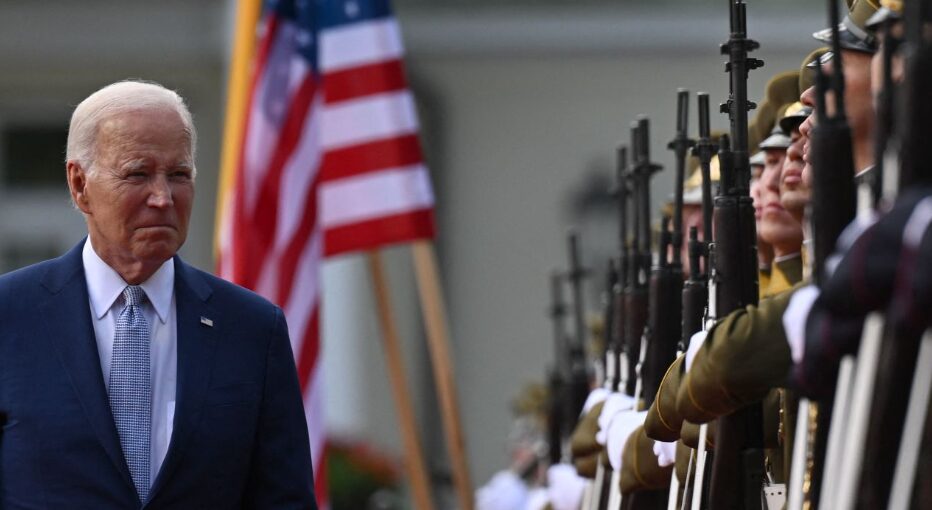As the NATO summit in Washington looms on July 9-10, an article by Politico has thrown a rather bold spanner in the works, revealing that leaders and diplomats from member countries are privately fretting over Biden’s health and his near-zero chances of winning the upcoming November elections.
The article, built on insights from 20 insiders connected with NATO or the summit’s organization, claims that these officials have harbored “quiet reservations” about Biden’s candidacy ever since his disastrous debate against Trump. Post the televised duel, where Biden displayed clear signs of cognitive and physical decline, these reservations have morphed into “dismay and fear” about Biden’s capacity to defeat Trump and lead a global superpower.
“It doesn’t take a genius to see that the president is old. We’re not sure that, even if he wins, he can survive four years more,” one official from a European NATO country candidly remarked. Another EU official didn’t hold back either, calling the presidential debate “painful to watch.” The sentiment is unanimous: “We all want Biden to have a second term to avoid dealing with Trump again, but this isn’t really reassuring.”
The candor continues with a minister from Rishi Sunak’s government (who resigned following Labour’s victory) urging Democratic Party donors to rally and pressure Biden to step aside. “We need a candidate credible for voters,” he bluntly stated.
Politico also reminds us that while European leaders have been tactfully silent on this issue, Polish Prime Minister Donald Tusk recently broke ranks, acknowledging the Democrats’ predicament post the ill-fated debate. “They definitely have a problem. The reactions have been unambiguous,” he commented.
As the host of the NATO summit, Biden faces the daunting task of proving to the heads of state, diplomats, and media that his cognitive and physical faculties are intact. Yet, with a schedule brimming with events, bilateral meetings, and speeches, the potential for Biden to falter, as he has in past public appearances, is a genuine concern. Politico highlights that Biden must be “lucid as he pals around with counterparts and discusses sensitive matters away from the cameras” during the official dinner.
Diplomats have voiced worries not about Biden skipping ceremonial dinners or using notecards, but about his political standing and reelection chances. “They worry about his political liability,” they say, pointing to his age as a significant factor.
The overarching anxiety stems from Biden’s political crisis and his dwindling election prospects. A Trump return to the White House, with his critical stance on US contributions to NATO and the military financing of Kiev—both of which the European establishment staunchly supports—seems increasingly plausible.
A recent USA TODAY/Suffolk University poll post-Biden’s calamitous debate with Trump reveals a stark reality: more registered voters believe Trump would outperform Biden on most major issues, especially national security and dealings with China. While Biden scores marginally higher on race relations and health care, a troubling 51% of respondents now approve of Trump’s past presidential performance compared to just 41% who approve of Biden’s current tenure.
One senior EU diplomat didn’t mince words, suggesting that Biden might struggle to maintain his campaign and calling on the Democratic Party to “consider all options.” It’s a sentiment that underscores the gravity of the situation as the NATO summit approaches.
In this atmosphere of growing uncertainty, Biden’s task is cut out for him. He must navigate the summit with a blend of diplomatic finesse and visible vitality, aiming to allay fears both at home and abroad. Whether he can pull off this Herculean feat remains to be seen, but the whispers and worries among NATO diplomats certainly add a cheeky, bold twist to the high-stakes game of global politics.
